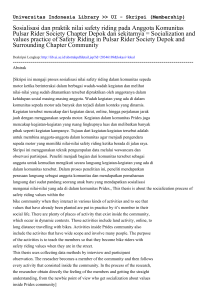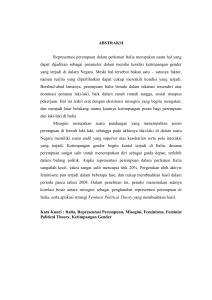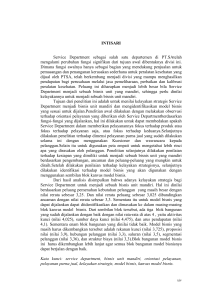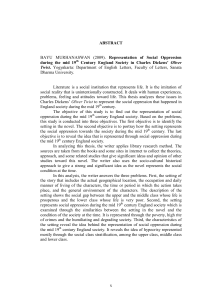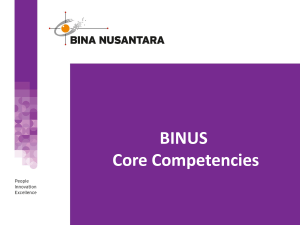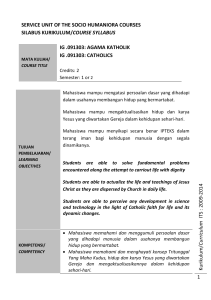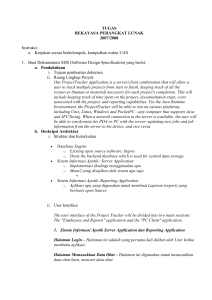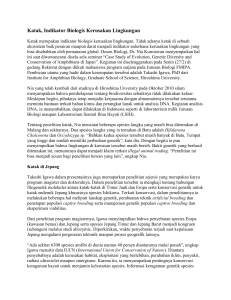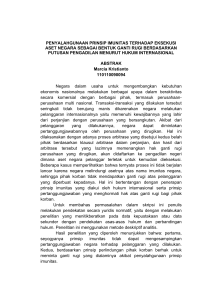INTISARI Novel Mausimu al-Hijrah ilā asy-Syimāl (MHiS
advertisement
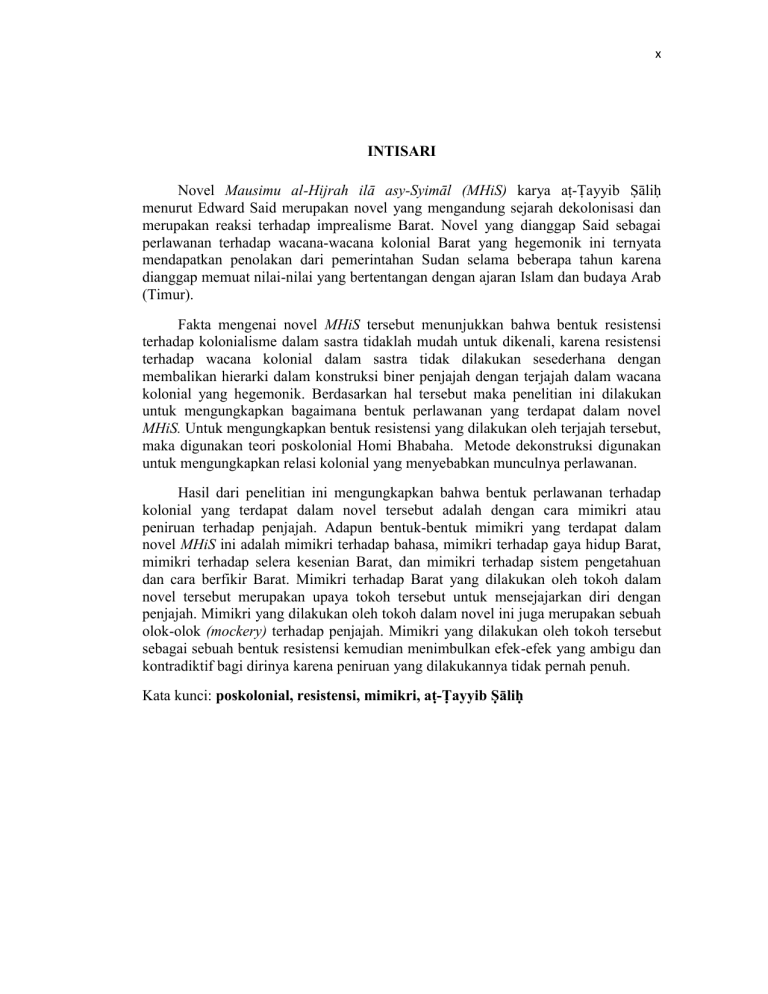
x INTISARI Novel Mausimu al-Hijrah ilā asy-Syimāl (MHiS) karya aṭ-Ṭayyib Ṣāliḥ menurut Edward Said merupakan novel yang mengandung sejarah dekolonisasi dan merupakan reaksi terhadap imprealisme Barat. Novel yang dianggap Said sebagai perlawanan terhadap wacana-wacana kolonial Barat yang hegemonik ini ternyata mendapatkan penolakan dari pemerintahan Sudan selama beberapa tahun karena dianggap memuat nilai-nilai yang bertentangan dengan ajaran Islam dan budaya Arab (Timur). Fakta mengenai novel MHiS tersebut menunjukkan bahwa bentuk resistensi terhadap kolonialisme dalam sastra tidaklah mudah untuk dikenali, karena resistensi terhadap wacana kolonial dalam sastra tidak dilakukan sesederhana dengan membalikan hierarki dalam konstruksi biner penjajah dengan terjajah dalam wacana kolonial yang hegemonik. Berdasarkan hal tersebut maka penelitian ini dilakukan untuk mengungkapkan bagaimana bentuk perlawanan yang terdapat dalam novel MHiS. Untuk mengungkapkan bentuk resistensi yang dilakukan oleh terjajah tersebut, maka digunakan teori poskolonial Homi Bhabaha. Metode dekonstruksi digunakan untuk mengungkapkan relasi kolonial yang menyebabkan munculnya perlawanan. Hasil dari penelitian ini mengungkapkan bahwa bentuk perlawanan terhadap kolonial yang terdapat dalam novel tersebut adalah dengan cara mimikri atau peniruan terhadap penjajah. Adapun bentuk-bentuk mimikri yang terdapat dalam novel MHiS ini adalah mimikri terhadap bahasa, mimikri terhadap gaya hidup Barat, mimikri terhadap selera kesenian Barat, dan mimikri terhadap sistem pengetahuan dan cara berfikir Barat. Mimikri terhadap Barat yang dilakukan oleh tokoh dalam novel tersebut merupakan upaya tokoh tersebut untuk mensejajarkan diri dengan penjajah. Mimikri yang dilakukan oleh tokoh dalam novel ini juga merupakan sebuah olok-olok (mockery) terhadap penjajah. Mimikri yang dilakukan oleh tokoh tersebut sebagai sebuah bentuk resistensi kemudian menimbulkan efek-efek yang ambigu dan kontradiktif bagi dirinya karena peniruan yang dilakukannya tidak pernah penuh. Kata kunci: poskolonial, resistensi, mimikri, aṭ-Ṭayyib Ṣāliḥ xi ABSTRACT Edward Said states that At-Tayyib Salih’s Mausu ila al-Hijrah ash-Syimāl (MHiS) is a novel that contains of history of decolonization and a reaction against Western imperialism. The novel which is regarded by Said as a locus of resistance against Western hegemoni colonial discourses, was getting rejection by the Sudanese government for several years because their values content that are contrary to the values of Islam and the Arab culture (East). Facts about MHiS shows that a form of resistance against colonialism in literature is not so easy to recognize, because of resistance to the colonial discourse in the literature is not as simple as reversing the colonialized and colonializer hierarchy in the construction of binary hegemonic colonial discourse. Thus, this study was conducted to reveal form of resistance in MHiS. Homi Bhabaha’s postcolonial theory is used to reveal the form of resistance whic is carried out by the colonized. Deconstruction method is used to reveal the colonial relations that led to the emergence of resistance. The results from this study revealed that a form of resistance against colonial whic is contained in the novel is throught mimicry or emulation to the colonizer. And the mimicry forms which is contained in MHiS are the mimicry of language, mimicry towards a western lifestyle, mimicry to taste Western art, and mimicry to the knowledge systems and ways of thinking of West culture. MHiS characters’s mimicry is a mockery to the colonizer too. Mimicry which is performed by such MHiS’s characters is a form of resistance that lead ambiguous and contradictory effects for him because impersonation or emulation whic is he does is never full. Key Words: postcolonial, resistance, mimicry, aṭ-Ṭayyib Ṣāliḥ
